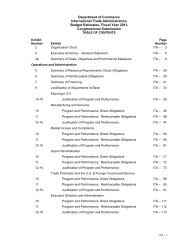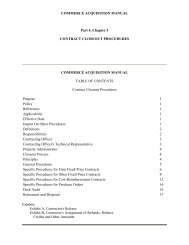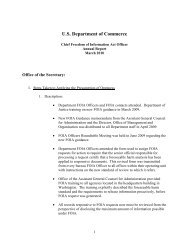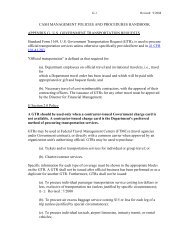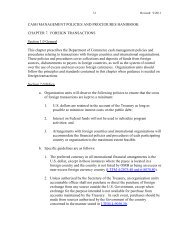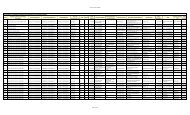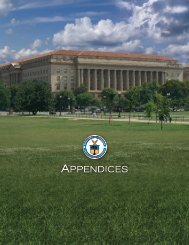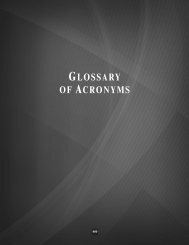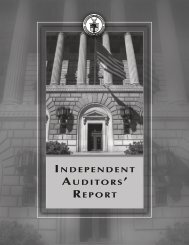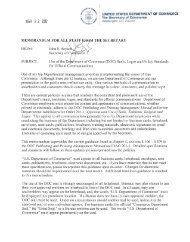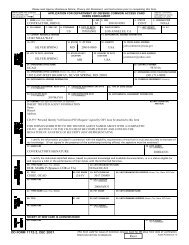Chapter II SUMMARY OF PERTINENT LAWS AND REGULATIONS
Chapter II SUMMARY OF PERTINENT LAWS AND REGULATIONS
Chapter II SUMMARY OF PERTINENT LAWS AND REGULATIONS
Create successful ePaper yourself
Turn your PDF publications into a flip-book with our unique Google optimized e-Paper software.
(d) After a general appropriation bill has been read for amendment, amotion that the Committee of the Whole House on the state of the Unionrise and report the bill to the House with such amendments as may havebeen adopted shall, if offered by the Majority Leader or a designee, haveprecedence over motions to amend the bill. If such a motion to rise andreport is rejected or not offered, amendments proposing limitations notspecifically contained or authorized in existing law for the period of thelimitation or proposing germane amendments that retrench expendituresby reductions of amounts of money covered by the bill may be considered.(e) A provision other than an appropriation designated an emergencyunder section 251(b)(2) or section 252(e) of the Balanced Budget andEmergency Deficit Control Act, a rescission of budget authority, or areduction in direct spending or an amount for a designated emergency maynot be reported in an appropriation bill or joint resolution containing anemergency designation under section 251(b)(2) or section 252(e) of suchAct and may not be in order as an amendment thereto.(f) During the reading of an appropriation bill for amendment in theCommittee of the Whole House on the state of the Union, it shall be inorder to consider en bloc amendments proposing only to transferappropriations among objects in the bill without increasing the levels ofbudget authority or outlays in the bill. When considered en bloc under thisparagraph, such amendments may amend portions of the bill not yet readfor amendment (following disposition of any points of order against suchportions) and is not subject to a demand for division of the question in theHouse or in the Committee of the Whole.Clause 4:A bill or joint resolution carrying an appropriation may not be reported bya committee not having jurisdiction to report appropriations, and anamendment proposing an appropriation shall not be in order during theconsideration of a bill or joint resolution reported by a committee nothaving that jurisdiction. A point of order against an appropriation in sucha bill, joint resolution, or amendment thereto may be raised at any timeduring pendency of that measure for amendment.House rules do not expressly require authorizations; they bar unauthorizedappropriations. Under the rules, before the House can consider mostappropriations measures, the purposes for which the money is to beprovided have to be authorized in law.The rule against unauthorized appropriations applies only to generalappropriations bills. According to the precedents of the House, acontinuing resolution (providing interim funding for agencies that havenot received regular appropriations by the start of the fiscal year) is not<strong>II</strong>(3)-2



